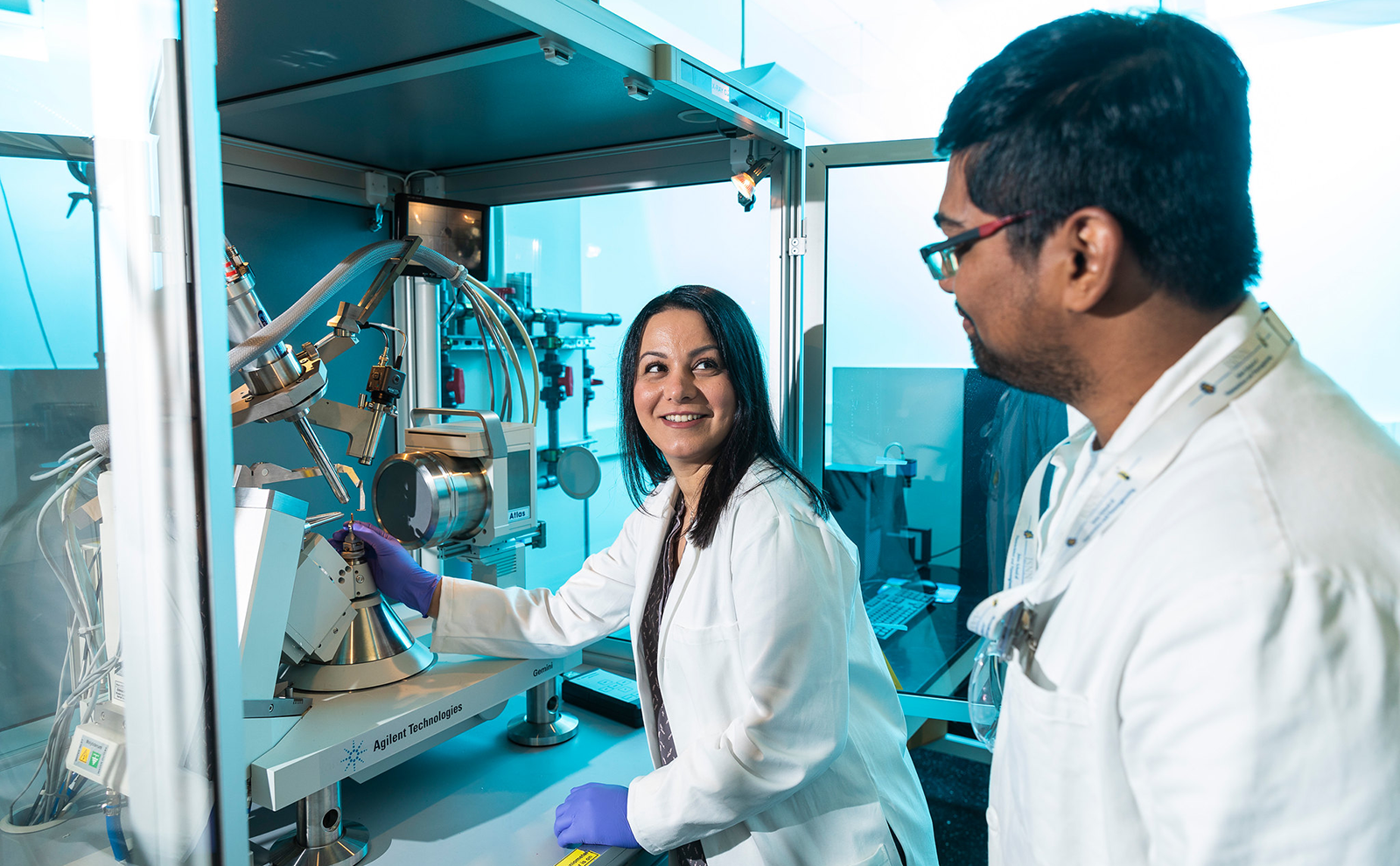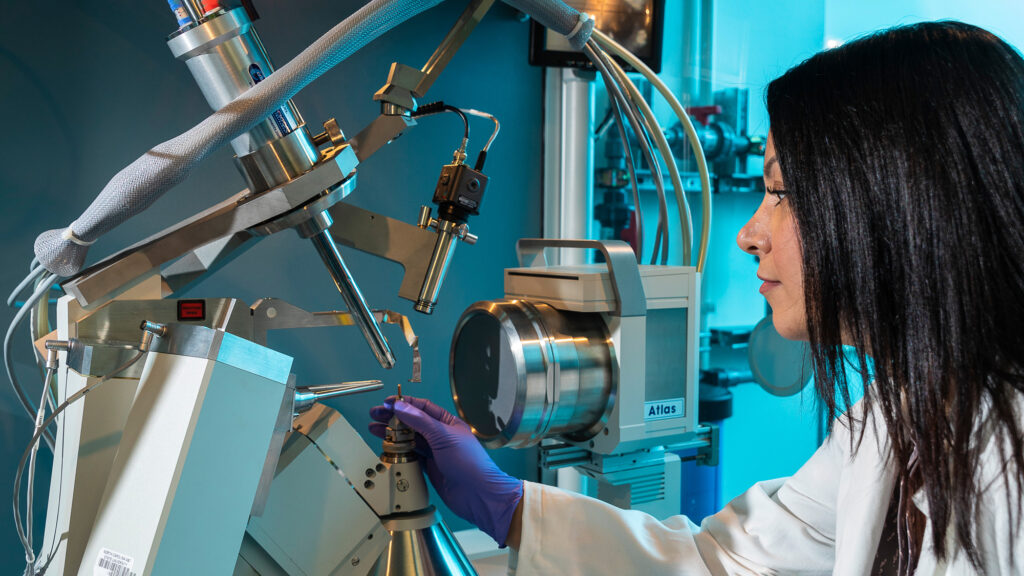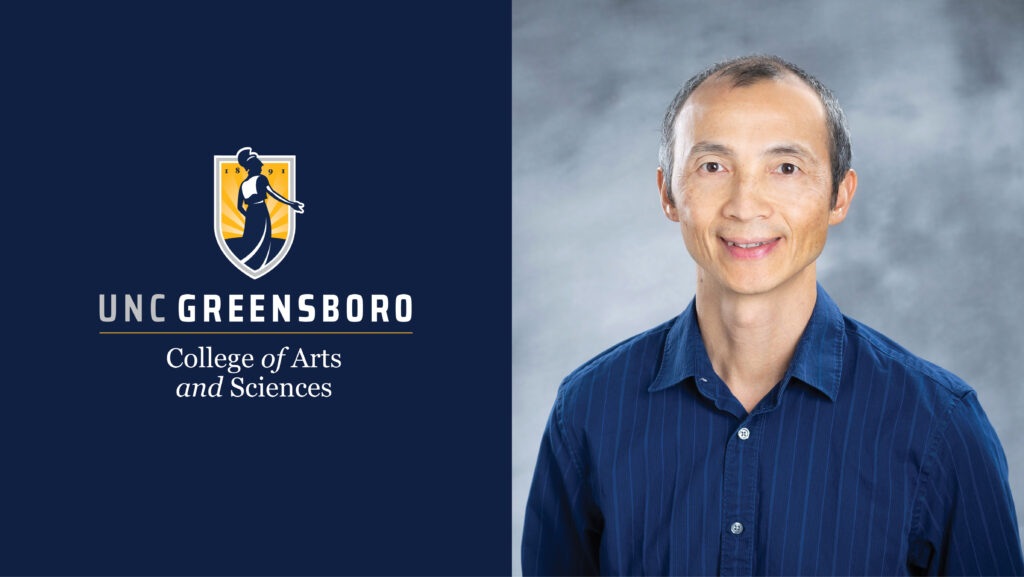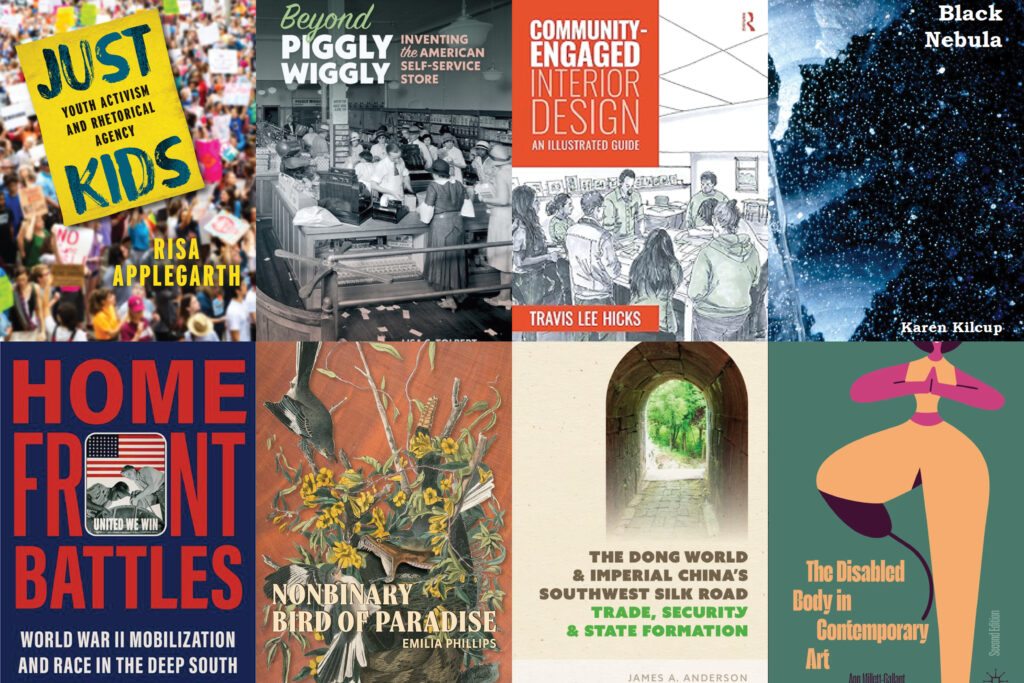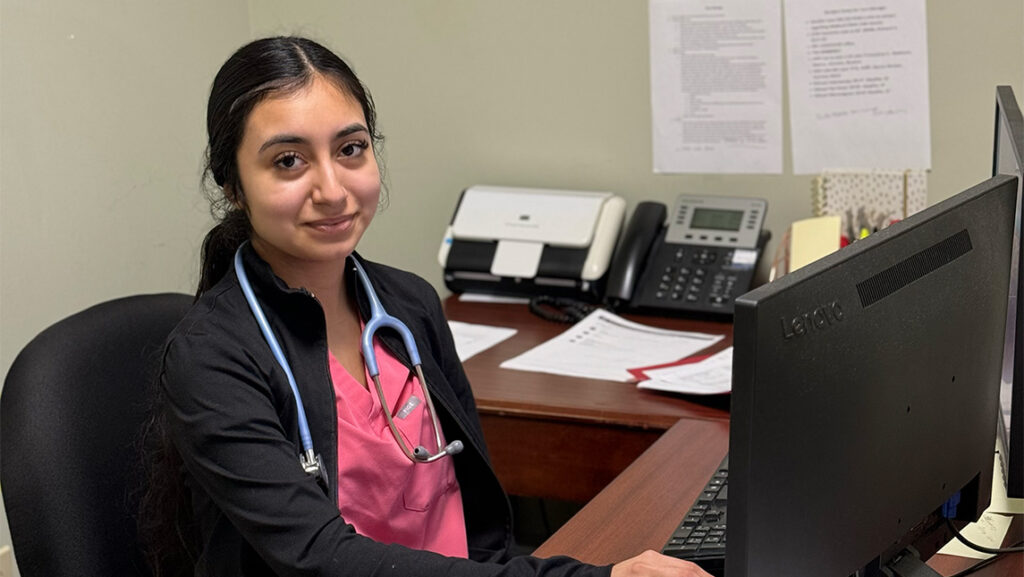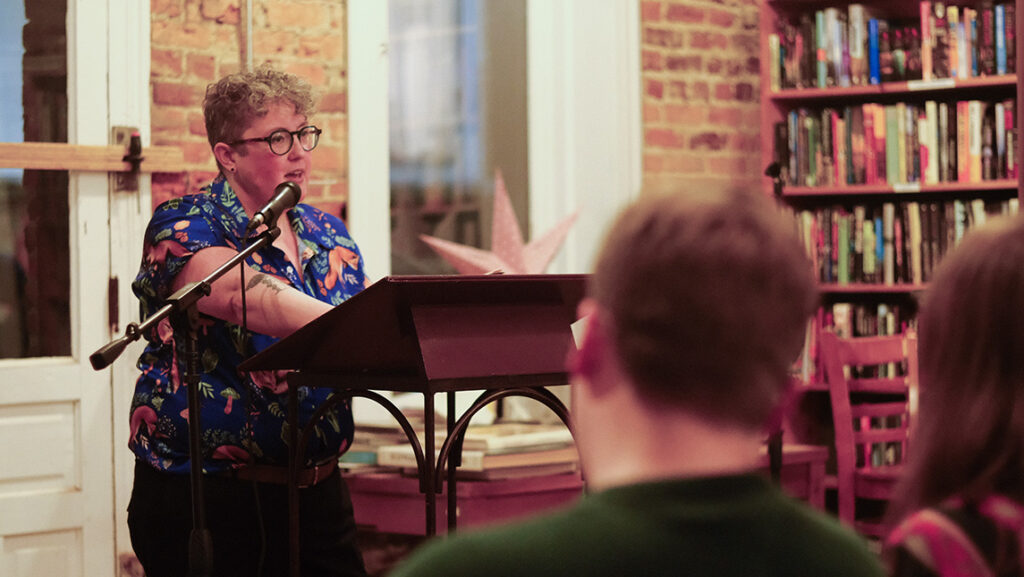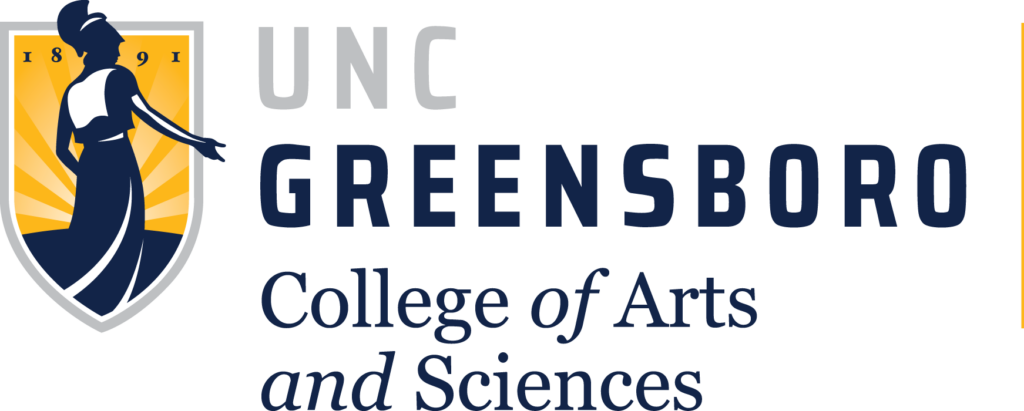UNC Greensboro set a new record for external research funding during the 2022-23 fiscal year, receiving more than $61 million in grants from outside funding agencies, according to UNCG’s Office of Research and Engagement.
Leading the way in this historic total was The College of Arts & Sciences (CAS) with its own record-breaking year: CAS professors and their research teams brought in $14.2 million in external funding, more than any other college or school at UNCG – and a 40 percent increase over last year.
“Exceeding the $60 million mark for the first time is a truly significant accomplishment for UNCG, especially in light of staffing challenges and other factors on campus,” said Dr. Terri Shelton, UNCG’s Vice Chancellor for Research and Engagement. “This is a tangible reminder and testament to the incredible faculty, researchers, staff, and students we have at UNCG, along with our community partners and sponsors.”
External research funding from agencies such as the National Science Foundation (NSF), National Institutes of Health (NIH), National Endowment for the Humanities (NEH), and more, enables faculty and their students to conduct cutting-edge research, scholarship, and creative activities. Notably, these record totals were achieved in just 10 months, from July 1, 2022, through April 30, 2023.
Within CAS, the departments with the highest funding totals were:
- Biology ($4.4 M)
- Chemistry & Biochemistry ($2.9 M)
- Psychology ($2.5 M)
- Computer Science ($2.2 M)
- Mathematics and Statistics ($1.4 M)
Other departments receiving external funding during this period were Anthropology; English; Political Science; Languages, Literatures, and Cultures; and Interior Architecture.
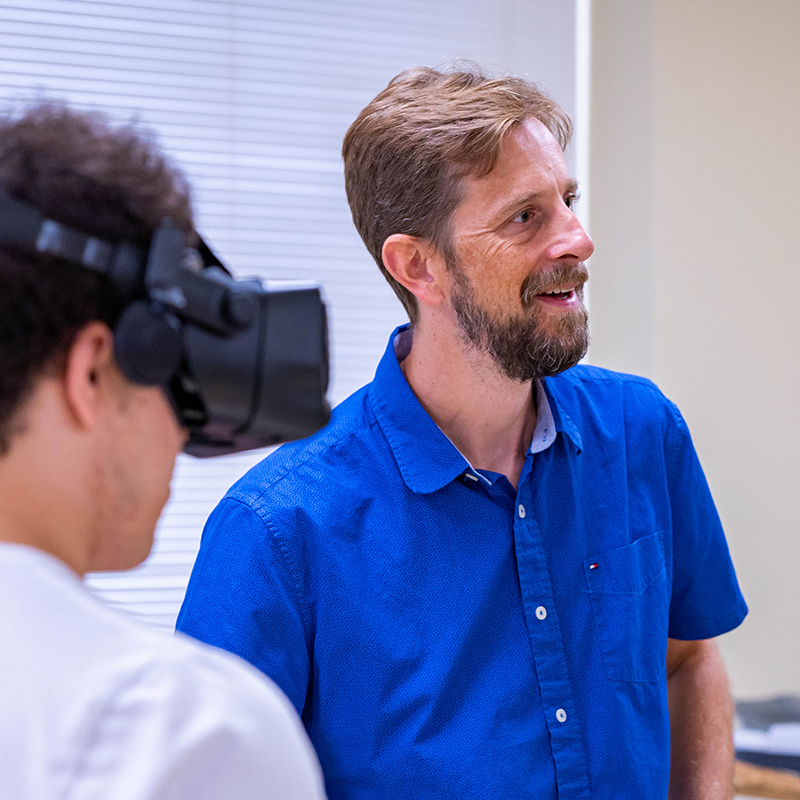
Altogether, scholars in CAS submitted 126 proposals requesting more than $39.9 M.
The final tally of external funding awards this fiscal year, which ends June 30, 2023, will not be available until later this summer. Last year, CAS received just over $10 M in external funding.
Dr. John Z. Kiss, Dean of the College of Arts and Sciences, expressed his admiration for faculty, department heads, and administrators who work to submit proposals and manage grants.
“I am so proud of the outstanding research our faculty are doing – it supports my concept of CAS faculty as teacher-scholars and brings so many benefits to our students. I also am grateful for the efforts of other people who help make their research possible – the graduate assistants and postdocs who manage studies, the department administrators who keep track of the funds, and senior faculty who collaborate with and mentor junior faculty,” Kiss said. “Research is teamwork, and it takes many contributors to reach a milestone like this one.”
MAJOR NEW AWARDS
Along with continuation funding from proposals submitted in prior years, many new awards contributed to this year’s historic total, including:
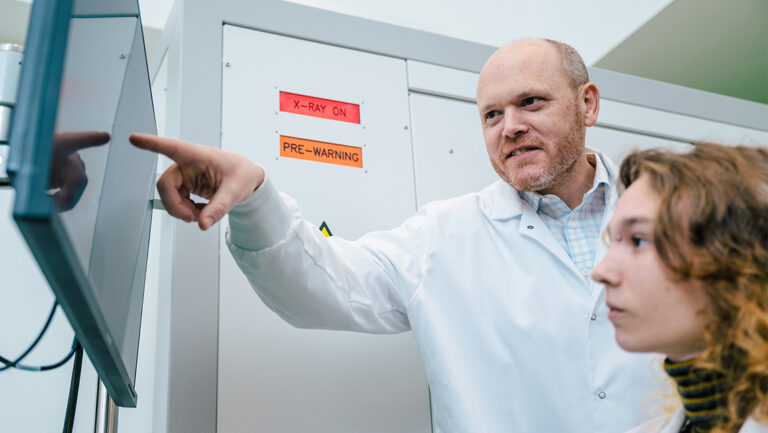
- Two grants from the National Science Foundation (NSF) led by Dr. Bryan McLean (Biology). The first will collect and study gastrointestinal tract data for small mammals in Appalachia. The second will create the Ranges Digitization Network, a collaboration of 21 museums and universities across the country, led by UNCG, to digitize and share trait data from over 1 M curated mammal specimens. McLean’s work was featured recently in this post.
- Two large R01 grants from the National Institutes of Health (NIH). Dr. John Tomkiel Dean (Biology) received an R01 for his project “The role of dTopors in Drosophila male meiosis.” Dr. Jonathan Chekan (Chemistry and Biochemistry) received his R01 for the project “Bioinformatic Guided Discovery and Characterization of New RiPP Natural Products.”
- Two new NSF Research Experiences for Undergraduates (REU) awards – one led by Dr. Terrance Nile (Chemistry and Biochemistry), and one led by Dr. Sat Gupta (Mathematics and Statistics). REU awards create projects that offer intensive summer research opportunities for undergraduate students from across the country. Dr. Gupta’s project will bring students to UNCG to work on “Complex Data Analysis using Statistical and Machine Learning Tools,” while Dr. Nile’s project will send eight students the University of Bath, UK to conduct research at the Centre for Sustainable and Circular Technologies.
- Two grants from the Simons Foundation to UNCG faculty in the Mathematics and Statistics department: Dr. Maya Chhetri for her proposal “Singular problems in bounded and unbounded domains” and Dr. Clifford Smyth for his proposal “Determinantal Identities and the Rational Non-negativity Problem.”
- Several grants that focus on supporting students who are underrepresented in STEM fields. Dr. Kimberly Petersen (Chemistry and Biochemistry) is lead PI on an NIH grant to support UNCG’s U-RISE program, and Dr. Dan Yasaki (Mathematics and Statistics) won an NSF grant for the project “Math Pathways for African American Collegiate Transformation.” The “Mountains to Sea NC LSAMP” project, co-led by Dr. Malcolm Schug (Biology), is a collaboration of 5 NC universities, led by UNCG, to develop and provide programs and support such as mentoring and summer research.
- A prestigious NSF LEAPS grant for early-career researchers to Dr. Shabnam Hematian (Chemistry and Biochemistry) for her project “Photoactivation of Metal-Oxo Bonds in Heterobinuclear Systems for Oxidative Catalysis.” (Read more)
- A grant from the National Institute of Standards and Technology to Dr. Regis Kopper (Computer Science) for “FirstModulAR,” a project that involves using augmented reality user interface modules to train first responders. (Read more)
- A renewed contract with the NC Dept of Health and Human Services to fund the “Recipe for Success” project, a long-running community nutrition effort led by Dr. Arthur Murphy (Anthropology).
- An NSF grant to Dr. Chris Wahlheim (Psychology) for his project “When and from Whom Reminder-based Corrections of Everyday Misinformation Improve Memory and Belief Accuracy.” This interdisciplinary project involves co-investigators Dr. Andrew Engelhardt (Political Science) and Dr. Robert Wiley (Psychology).
- Multiple grants and contracts from U.S. and international collaborators to research scientist Dr. Kaira Wagoner (Biology) that leverage her ongoing work on disease resistance in honeybee colonies.
- Multiple grants and contracts from university and corporate partners to Dr. Nicholas Oberlies (Chemistry and Biochemistry) that leverage his expertise in natural products chemistry.
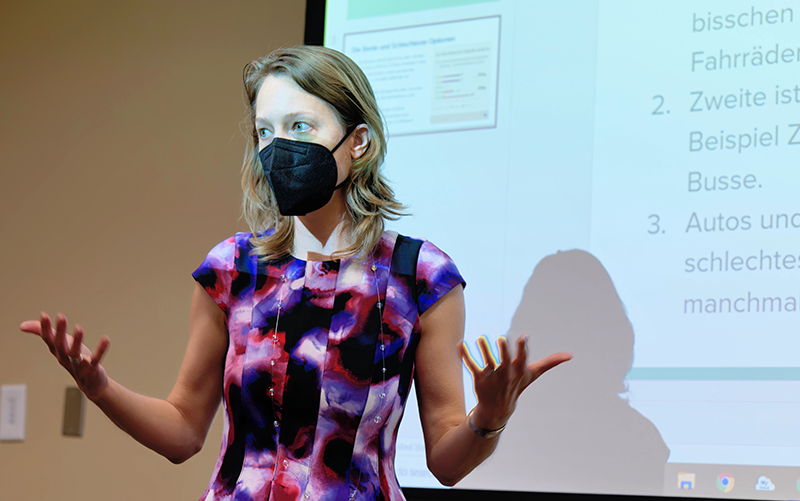
- A grant from the German Embassy to support the Germany on Campus project, led by Dr. Anna (Faye) Stewart (Languages, Literatures, and Cultures).
- A “Flash grant” from the NC Biotechnology Center to Dr. Sarah Koerner (Biology) for her project, “Legume-rhizobia symbiosis as a tool to enhance restoration success and long-term sustainability of longleaf pine savanna forestry.” The project will explore alternative methods for increasing soil fertility and plant productivity in longleaf pine forest ecosystems. Alyssa Young, a PhD student in Dr. Koerner’s lab, also received a prestigious pre-doctoral fellowship from the U.S. Department of Agriculture. Young will conduct related research on nitrogen fixation in longleaf pine ecosystems.
Story by Chad Fogleman, College of Arts & Sciences Office of Research
